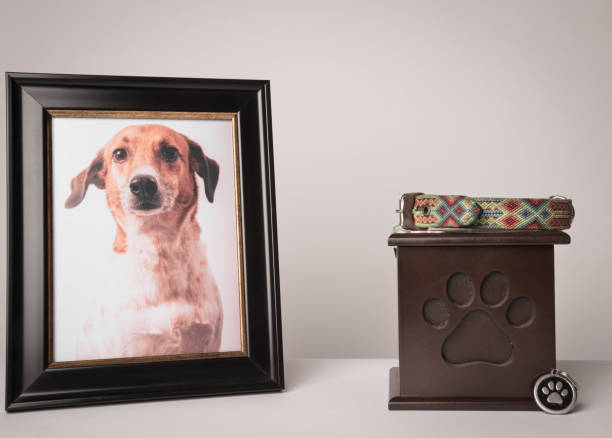Honoring the Memory: A Guide to Pet Funerals
Losing a pet is an incredibly painful experience. These furry, feathered, or scaled companions are often cherished members of our families, and saying goodbye can be one of the most difficult moments we face. Pet funerals provide a meaningful way to honor the bond we shared, allowing us to grieve, reflect, and pay our final respects. This guide explores everything you need to know about pet funerals in English - speaking countries.
The Significance of Pet Funerals
Pet funerals are more than just a formality; they play a crucial role in the grieving process. For many pet owners, the loss of a pet can be as devastating as losing a human loved one. A funeral ceremony offers a structured way to express emotions, seek closure, and celebrate the unique life of the pet. It also provides an opportunity for family members and friends who shared a connection with the pet to come together, support one another, and share memories, which can be therapeutic during a time of loss.
Common Types of Pet Funerals
Burial
- Traditional Burial: This involves burying the pet's body in a dedicated pet cemetery or, in some cases, in the owner's backyard (where permitted by local regulations). Pet cemeteries offer a peaceful and respectful final resting place, often with marked plots, headstones, or plaques. Some pet cemeteries even provide options for personalized memorials, such as custom - engraved stones or statues. The cost of a traditional burial in a pet cemetery can range from 100to
1000 or more, depending on the location, size of the plot, and additional services like a private burial ceremony.
- Home Burial: If local laws allow, many pet owners choose to bury their pets in their own backyards. This option provides a sense of closeness, allowing the owner to visit the pet's resting place easily. However, it's important to follow proper procedures, such as ensuring the burial is deep enough to prevent animals from disturbing the remains and complying with any local health and safety regulations.
Cremation
- Individual Cremation: With individual cremation, the pet's remains are cremated alone, ensuring that the returned ashes are solely those of the beloved pet. This option is often preferred by owners who want to keep the ashes for personal memorialization, such as scattering them in a special place or placing them in an urn at home. The cost of individual cremation typically ranges from 200to
500, including an urn and other optional services like a viewing before cremation.
- Communal Cremation: In communal cremation, multiple pets are cremated together, and the ashes are usually disposed of by the crematorium. This is a more budget - friendly option, with costs usually starting around 50−
100. However, owners do not receive the ashes back, so it's best suited for those who don't have a strong desire to retain them.
Services Offered in Pet Funerals
Memorial Services
Similar to human memorial services, pet memorial services can be held in a variety of settings, such as at home, in a pet - friendly church or chapel, or even outdoors in a garden or park. These services often include elements like eulogies, sharing of memories, playing the pet's favorite music, and lighting candles. Some owners may also choose to display photos, toys, or other items that were special to the pet.
Aftercare and Memorialization
Many pet funeral providers offer a range of aftercare and memorialization options. This can include custom - made urns, jewelry with the pet's ashes embedded, paw print keepsakes, or memorial plaques. These items serve as lasting reminders of the pet and can provide comfort to the grieving owner.
Preparing for a Pet Funeral
Planning Ahead
While it's a difficult topic to think about, planning a pet funeral in advance can alleviate some of the stress during an already emotional time. Consider your preferences for burial or cremation, research local pet funeral providers, and discuss your wishes with family members. Some pet owners even create a "pet end - of - life plan" that outlines specific details, such as the type of ceremony, the location, and any special requests.
Communicating with Family and Friends
Letting family and friends know about the loss and inviting them to participate in the funeral can be helpful. They may have their own memories and stories to share, which can make the ceremony more meaningful. It's also an opportunity for everyone to support each other through the grieving process.
Choosing the Right Provider
When selecting a pet funeral provider, look for a reputable company with positive reviews. Check if they are licensed and insured, and inquire about the range of services they offer, as well as their pricing. A good provider will be compassionate, understanding, and willing to guide you through every step of the process.
Budgeting for a Pet Funeral
The cost of a pet funeral can vary widely depending on the type of service, location, and additional options chosen. As mentioned earlier, burial in a pet cemetery can be more expensive due to plot costs and other associated fees. Cremation, especially individual cremation, also has a range of prices based on the services included. On average, pet owners can expect to spend anywhere from 50forabasiccommunalcremationtoover
1000 for a full - service burial with a custom memorial. It's important to set a budget and discuss your options with the funeral provider to ensure you get the best service within your means.
In conclusion, pet funerals are a deeply personal and meaningful way to honor the lives of our beloved companions. By understanding the different types of funerals, available services, and how to prepare, you can create a fitting tribute that helps you and your family through the grieving process. Remember, there is no right or wrong way to say goodbye; the most important thing is to do what feels right for you and your pet.
